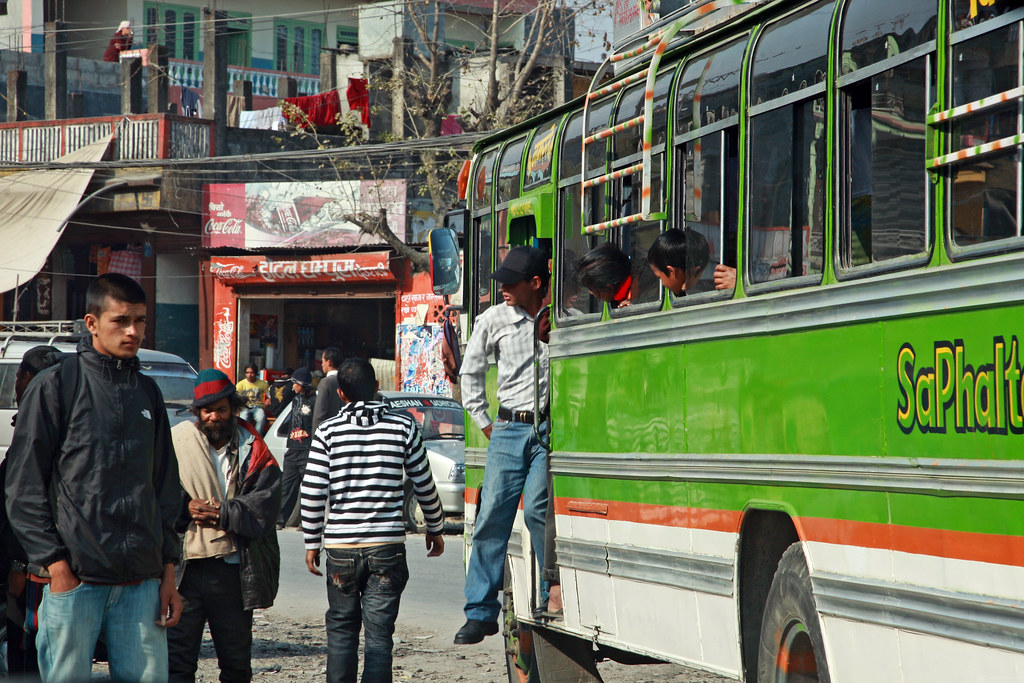第一屆全球永續運輸會議27日在中亞的土庫曼阿什哈巴特落幕,確立永續運輸是聯合國全球永續發展議程的一環,也是全球共同的責任。
為期二日的研討會召集各國政府、聯合國機關和其他國際組織代表、私人企業和公民社會參與對話,探討運輸在2030永續發展議程中多元、整合性的角色。
聯合國經濟社會委員會副秘書長吳紅波在會後記者會上表示,「會議產生的共識,簡單來說,就是若沒有永續運輸,氣候行動和永續發展目標將無法取得長足進步。」
要永續發展 不能不談交通運輸
聯合國秘書長潘基文表示,「永續運輸必須回應最貧乏者的需求。如果能做到這點,運輸就不只能縮短地理距離,也能真正實現天下一家。」
與會人士包括三位國家領導人、一位政府領導人、六位副首相、兩位外長、42位運輸與基礎建設相關首長和副首長、200多個企業與公民社會代表,以及超過20個跨政府組織與聯合國機關代表。
會議為四個相關協議打下基礎:國際貨物邊境管制協調公約(International Convention on the harmonization of frontier controls of goods)、亞洲公路網政府間協定(Intergovernmental Agreement on the Asian Highway Network)、泛亞鐵路網政府間協定(Intergovernmental Agreement on the Trans-Asian Railway Network)和陸港政府間協定(Intergovernmental Agreement on Dry Ports)。
這些公約和協定旨在促進運輸,改善數百萬人的生活。「永續運輸是確保所有人都能被照顧到的關鍵,確保經濟繁榮、服務可被運用並且保護環境。」吳紅波說。
全球10億人無運輸工具 海、陸、空整合尤重要
吳紅波指出,開發中國家、境遇特殊國家、低度開發國家、內陸開發中國家和開發中島國需要「特別的考量」。這些國家面對先天運輸條件不佳、運輸基礎建設不足、缺少對外聯繫、能力有限、運輸造成空氣污染和道路損壞等問題。
但是另一方面,這些國家在永續發展方面潛能無限。
區域合作、國際支援和投資挹注可以將這些國家的人口和經濟與地方和全球接軌,全球都能受益,同時實現所有人都能被照顧到的願景。吳紅波強調,道路、鐵路、航空、渡輪和海運等運輸必須整合,相關產業也必須展開合作。
聯合國職務協助管理秘書(under-secretary-general)和最低度開發國家、內陸開發中國家及小島嶼開發中國家高級代表(high representative for the Least Developed Countries, Landlocked Developing Countries and Small Island Developing States)Gyan Acharya說,全世界有12億交通運輸工具,但卻有10億人沒有運輸工具可用。
「特殊境遇國家很難同時爭取永續運輸投資和合作又達成巴黎協定的氣候變遷目標。」Acharya強調國際合作對於這些國家和區域合作的重要性。
聯合國:運輸系統首重安全、普及、永續
潘基文表示,永續運輸可以驅動成長、創造工作機會、減少貧窮、拓展市場、扶持女性並支持其他弱勢群體的生活,其在經濟之外對人性面的幫助不容忽視。
許多偏遠社群缺乏永續運輸工具,數百萬身障人士無法使用大眾運輸工具,老年人使用大眾運輸工具也有相當困難。
「就算有運輸工具也不見得安全,對女性來說尤其如此。」潘基文說。潘基文提議以與永續發展目標一致的整合性政策框架解決這些錯綜復雜的問題,強調安全、環境和健康。
潘基文說,資金當然是基本條件,要有投資才能看到成果,同時應以把人視為運輸規劃核心、通力合作的方式動員合作夥伴。所有倡議、自主承諾、合作內容、阿什哈巴特承諾聲明以及全球永續運輸會議的政策建議都會放在會議網站上。
The first-ever Global Sustainable Transport Conference concluded Sunday in the Central Asian country of Turkmenistan with sustainable transport welded into the United Nations global sustainable development agenda, showing that to be sustainable, transport must be a shared global task.
At the two-day conference in Ashgabat, stakeholders from governments, the United Nations system and other international organizations, the private sector and civil society engaged in a dialogue on the integrated and cross-cutting nature of transport and its multiple roles in supporting achievement of the 2030 Agenda for Sustainable Development.
UN Secretary-General Ban Ki-moon told the delegates, “Sustainable transport has to answer to the needs of those who have the least. When it does, we can bridge more than physical distances; we can come closer as one human family.”
The two-day conference was attended by three Heads of State, one Head of Government, six Deputy Prime Ministers, two Foreign Ministers, 42 Ministers and Vice-Ministers of transport and infrastructure. Some 200 business and civil society representatives, along with representatives of over 20 intergovernmental organisations and the UN entities participated in the event.
During the conference, Turkmenistan deposited instruments of accession to four agreements: the International Convention on the Harmonization of Frontier Control of Goods, the Intergovernmental Agreement on the Asian Highway Network, the Intergovernmental Agreement on the Trans-Asian Railway Network, and the Intergovernmental Agreement on Dry Ports. These conventions and agreement are intended to facilitate transport, which will contribute to the improved well-being of millions of people.
“There is a consensus emerging from the discussion,” said UN Under-Secretary-General for Economic and Social Affairs Wu Hongbo at the final press conference on the results of the two-day gathering.
“Simply put, without sustainable transport, there will be no lasting progress on climate action; without sustainable transport, there will be no lasting progress on the Sustainable Development Goals,” he said.
“Sustainable transport solutions are key to leaving no one behind, securing economic prosperity, enabling access to services and protecting the environment.”
Wu said that “special consideration” is needed for developing countries and countries in special situations – least developed countries, landlocked developing countries, and small island developing states.
All these countries face difficulties linked to transit, inadequate transport infrastructure, missing links, limited capacities, traffic-related air pollution and road fatalities.
On the other hand, said Wu, these countries have an enormous potential for sustainable development.
Regional cooperation, international support, and focused investments can connect their populations and economies both domestically and globally the way that the whole world would benefit while leaving no one behind.
Wu stressed the need for integration across road, rail, aviation, ferry and maritime modes, and said these different sectors need to start working together.
Gyan Acharya, UN under-secretary-general and high representative for the Least Developed Countries, Landlocked Developing Countries and Small Island Developing States said there are 1.2 billion vehicles in the world, yet one billion people lack transportation.
“It is difficult for countries in special situations to secure investment and partnerships to support sustainable transport and transit solutions while staying on course to meet Paris Agreement on climate change targets,” he told delegates, emphasizing the need for enhanced and strengthened global partnerships to complement national efforts and regional collaboration.
While sustainable transport can drive inclusive growth, create jobs, reduce poverty, open markets, empower women and help secure the well-being of other vulnerable groups, there is a human side beyond economics, said the UN secretary-general
Sustainable transport is out of reach for too many rural communities, millions of persons with disabilities could not use public transportation because it was inaccessible and older persons struggled to move from one place to the next, said Ban.
“Even where transport is available, it may not be safe, especially for women and girls, who often rightly fear they may be attacked,” he said.
To address these and related concerns, Ban proposed the adoption of a broad view aimed at resolving interlocking problems of transport with an integrated policy framework that aligns with the Sustainable Development Goals while emphasizing safety, the environment and health.
Financing is essential, he said, as it takes investments to see results, and all partners must be mobilized by putting people at the center of transport planning and by working together.
A final compilation of initiatives, voluntary commitments and partnerships will be posted on the Conference website, as will the Ashgabat Statement on Commitments and Policy Recommendations of the Global Sustainable Transport Conference.
※ 全文及圖片詳見:ENS







